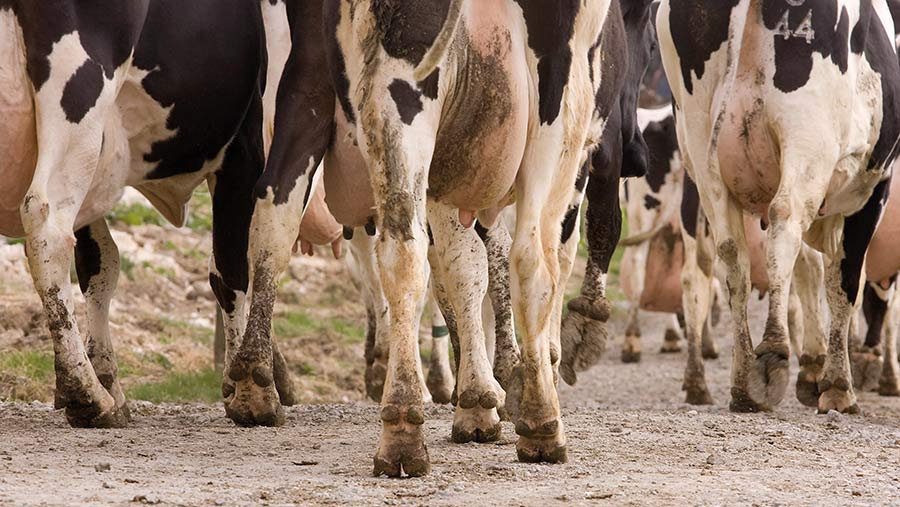FW Opinion: Call out cruelty to protect farming’s reputation
 © Jonathan Page
© Jonathan Page The episode of the BBC’s Panorama on Monday night examining the dairy industry was a difficult watch for the many farmers who tuned in.
Some of the actions in the show were indefensible and disturbing, including the treatment of the downer cow in the parlour.
Not even the low milk price can justify such behaviour and no one should waste time contorting themselves to find reasons to excuse it.
Instead, farmers should be rightly outraged at the implication that they treat their stock less well when they are losing money compared with when they are profitable.
A continual pressure to do more with less against a backdrop of rising costs and an uncertain milk price may incentivise cutting corners, but animal cruelty is certainly not the inevitable result.
High standard
I am sure pig owners are still giving their livestock the same high standard of care that they were enjoying before the sector plunged sharply into loss-making territory.
But as an industry we should not be continually afraid to debate the extent to which there is a culture in farming that permits cruelty to animals.
I am firmly of the view that this sort of behaviour is only practised at the fringes of our industry rather than being commonplace, as certain campaigners would have consumers believe.
Yet however infrequent it is, the fact that activists can lay their hands on footage to show it happening at all means there is more to be done to further reduce incidence rates.
As a young farmer, I occasionally witnessed harmful behaviour to animals on farms or at livestock markets.
Face consequences
Sometimes people did not face consequences for their actions and sometimes they got the monumental tongue lashing they deserved. In hindsight, I regret being too timid to speak up myself.
It is the responsibility of all business owners and farm staff to energetically enforce a culture where this sort of behaviour is never tolerated or ignored.
Over the course of the past few decades, British farming’s reputation on the global stage and with domestic consumers has soared from the doldrums linked to bovine spongiform encephalopathy (BSE) and foot-and-mouth. Now our produce is seen as being of the highest quality.
And rising interest in food provenance, quality and nutritional value will help create premiums, such as those enjoyed by producers who are willing to welcome consumers on farm and sell produce direct.
Beyond that, the farmers, dairy processors and supermarkets who have worked together to drive up environmental and animal welfare standards on farm deserve a huge amount of credit.
Exception, not rule
This is the vital day-to-day work that helps contextualise bad stories in the mind of the consumer as marginal rather than mainstream.
Those who agreed to appear on the show, such as NFU Cymru’s Abi Reader, Taynton Court Farm owner James Griffiths, dairy analyst Ian Potter and vet Roger Blowey, also deserve plaudits for representing the mainstream industry.
In giving them airtime, the BBC did a far better analysis of the sector than previous investigative forays into farming such as Meat: A Threat to Our Planet?, which was removed from iPlayer after a storm of criticism.
We should be bold enough as an industry to welcome this sort of scrutiny.
We’ll never do enough to satisfy animal rights campaigners, but being able to stand up and justify our actions to an animal-loving nation is vital for keeping consumers on side.

